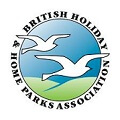What happens to my park home when I’m gone?
What happens to my park home when I’m gone?
We all want to protect our assets and ensure that any wealth we’ve accrued in our lives is passed onto our loved ones. With this in mind, we asked park home specialist IBB Solicitors to examine some of the issues surrounding mobile home inheritance…
(First Published in Park Home & Holiday Caravan Magazine)
In this article we explain some of the rules relating to park homes inheritance and offer tips on ensuring that your home does not end up in the wrong hands after you’re gone.
I want my children to inherit my park home. I have a Will, but it doesn’t say anything about the home. Do I need to change my Will?
Your mobile home is a personal asset and will form part of your estate when you die. If you want somebody in particular to inherit your home, this should be provided for in the Will. If you die without a Will, your estate will be distributed according to the rules of intestacy, which could result in a very different outcome than the one you desire. If in doubt, speak to a solicitor with expertise in estate planning. You also need to bear in mind that if your children are not living with you at the time that you die, they will not automatically be able to live in the home.
I bought my park home before I met my husband. We have now been married for 15 years, but his name was never added to the occupation agreement. If I die before he does, can he continue to live in the home?
When a residential park home occupier dies, their occupation agreement continues in full force and effect. Their rights and responsibilities under the agreement pass automatically to their widow or widower, provided they lived with them when they died. This will be the case even if the surviving spouse was not named on the agreement.
If the occupier was not married, the agreement will pass to any family member who was living with the occupier when they died, and they will take on the rights and responsibilities under the agreement. They must continue to pay the pitch fee and maintain the home in good repair. They can also sell the home if they so choose.
Family members include parents, grandparents, children (including stepchildren) and grandchildren, siblings, aunts, uncles, nieces, nephews, civil partners and cohabitees. If there is any doubt as to whether someone is a family member, it is for the family member in question to provide proof.
Our parents bought a park home ten years ago. Our mum died recently, and our dad wants to sell the home and move in with us. We’ve lined up a buyer, but the park owner is insisting our dad sell the home back to him. Can he do this?
The short answer is ‘no’. Provided you live on a ‘protected’ site and have an agreement for residential occupation to which the Mobile Homes Act 1983 (as amended) applies, the park owner cannot insist that you offer to sell the home back to him (known as a right of first refusal). He can make you an offer, which you are free to accept or reject. If you do decide to sell then home back to the park owner, you will not need to pay the ten per cent commission charge.
If the home was purchased on or before 26 May 2013, your parents will have an ‘existing agreement’ and your father must notify the park owner of an intended sale (by way of a Notice of Proposed Sale), and provide details about the proposed buyer, at least 21 days prior to the anticipated date of completion.
The owner can object to the sale but only if the park has a minimum age limit and/or rules about pets or cars that the proposed buyer won’t meet. To do this the park owner will need to make an application to the First-tier Tribunal (Property Chamber) within 21 days of the receipt of the occupier’s notice. Where the home was purchased after 26 May 2013, the agreement will be a ‘new’ one and the park owner cannot object.
My dad lived with his girlfriend in his park home before he died. He left the home to me and my two siblings in his Will. We want to sell the home, but his girlfriend won’t leave. What can we do?
As your dad’s girlfriend was living with him in the home at the time he died, she is entitled to continue to live in the home and the occupation agreement will transfer to her automatically. However, she does not own the home and cannot sell it. Although you (and your siblings) do have a right to sell it, you will struggle to do so as long as your dad’s girlfriend is in occupation. The only way to resolve this impasse may be for one party to buy the other out.
I found a pre-owned park home I want to buy. The park owner, who is selling the home, explained that the previous owner had lived alone, had no surviving family and did not leave a Will. Should I be concerned?
If there is no surviving occupier, and the deceased did not make a Will, the occupation agreement will pass to the person who is entitled to the mobile home under the intestacy rules. In practice, this usually means that the administrator will sell the home on behalf of the estate.
Where no one claims the home, the park should make reasonable attempts to locate any executors and/or beneficiaries. If none are found, the park should then contact the Treasury Solicitor who may apply for a grant on behalf of the estate. If the Treasury Solicitor will not act, the park owner should obtain the death certificate and apply for a limited Grant of Administration to allow them to sell the home and any other remaining assets.
Before agreeing to purchase the home, you should be satisfied that the park has taken all of the above steps and is in fact entitled to sell the home. The last thing you want after moving in is to receive a visit from a long-lost relative of the deceased claiming that the home is theirs.
My partner and I have been living together in a park home for the past three years. My name is on the occupation agreement, but my partner’s is not. What will happen to the home if one of us dies?
Provided you are still living together when one of you dies, the occupation agreement will transfer automatically to the surviving co-habitee. If you die before your partner, your partner should have the agreement assigned to them. This may need to be done by the executor of the deceased partner’s estate and the park owner will likely ask to see a copy of the death certificate and/or grant of probate, if there is one. No commission will be payable, as no money will be changing hands.
My grandmother died and left her park home to me in her Will. I was not living with her when she died but would now like to move in. Is it now possible to do this?
If you inherit a mobile home but were not living with the occupier when they died, you do not have an automatic right to live there. Once the assets of the estate have been distributed, if you want to live in the home you will need to have the occupation agreement transferred into your name. If the deceased occupier had an ‘existing agreement’ (see above), a Notice of Proposed Gift form will need to be completed and served on the park owner. If the agreement was a ‘new’ one, it will need to be assigned to you. This should be done by the executor or personal representative of the deceased’s estate. No commission will be payable, as no money will be changing hands.
Contact our park homes experts today
For more information or to discuss your matter please contact our residential parks team today on 03456 381381 or email parks@ibblaw.co.uk.


